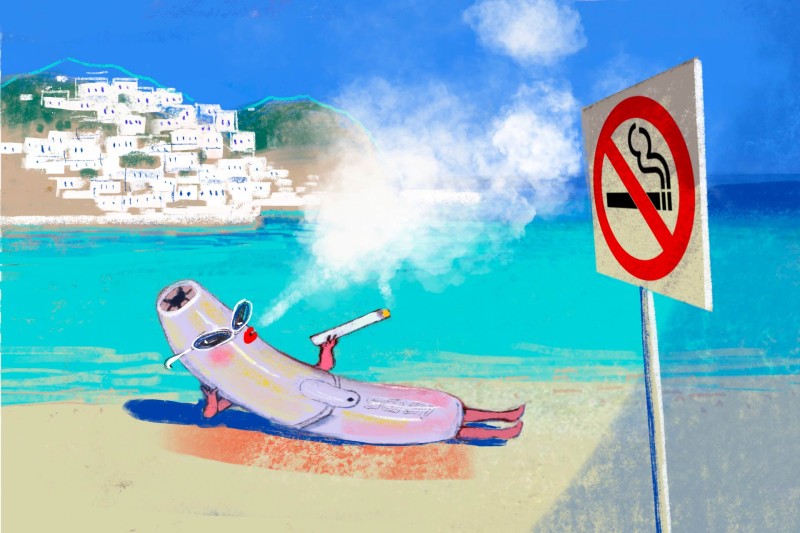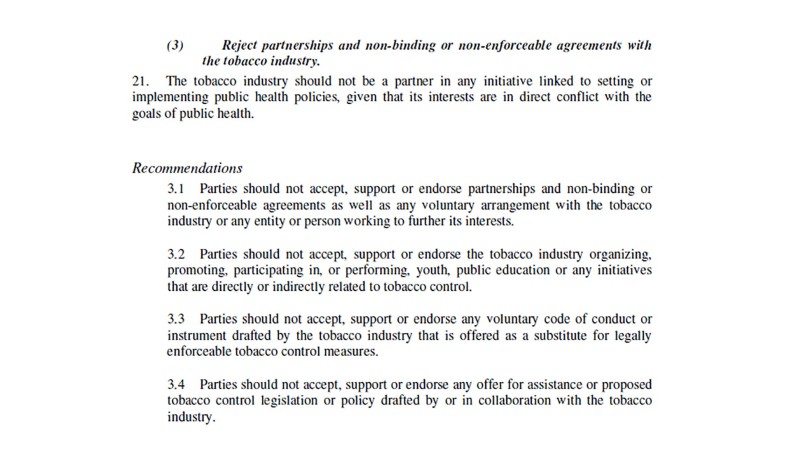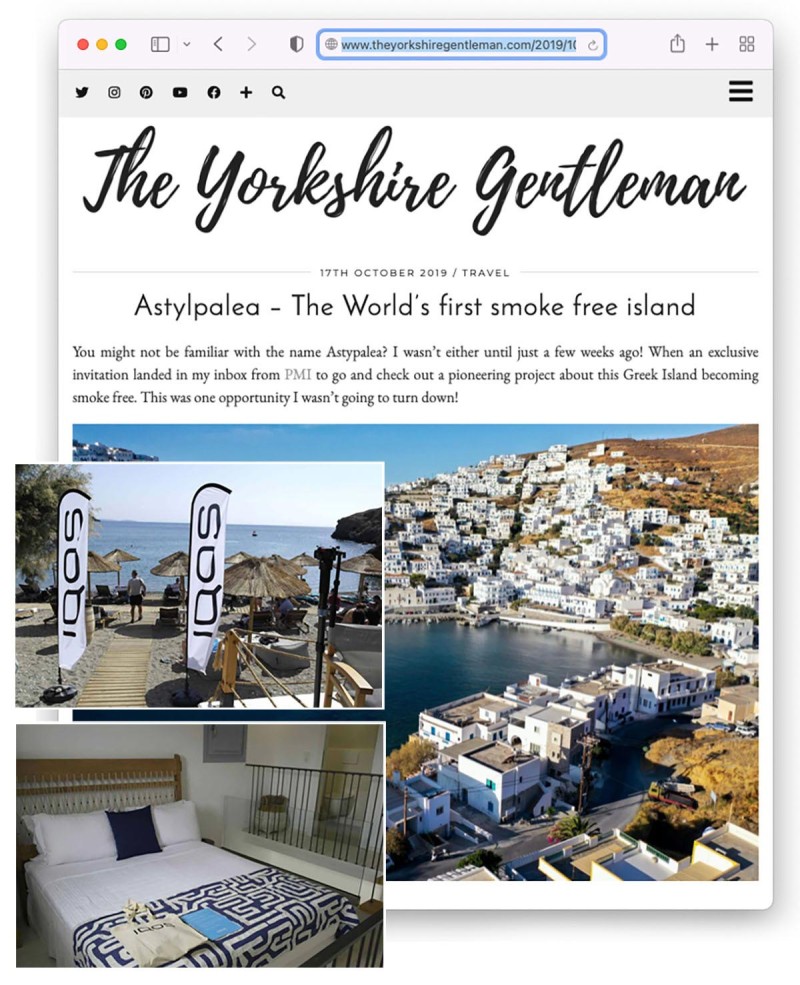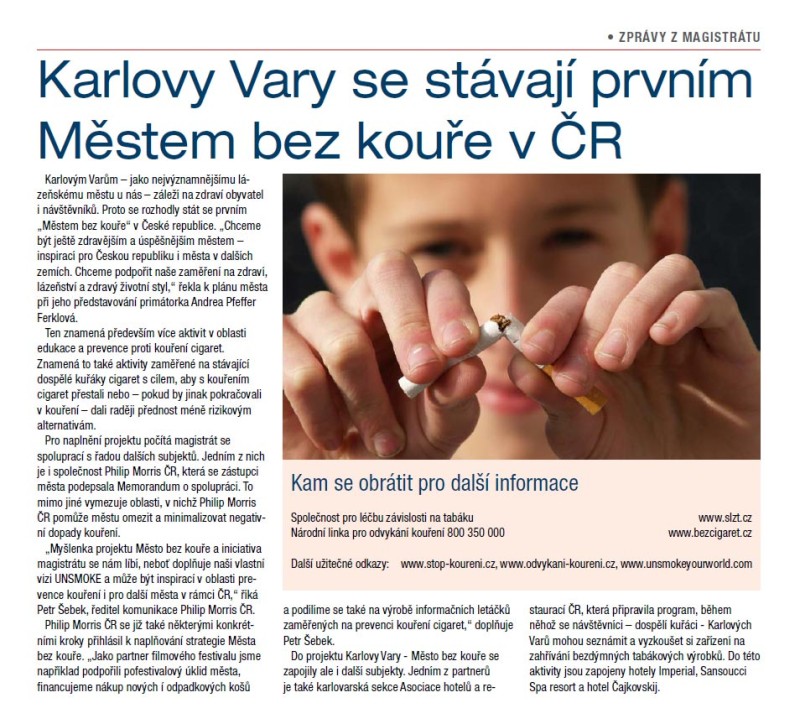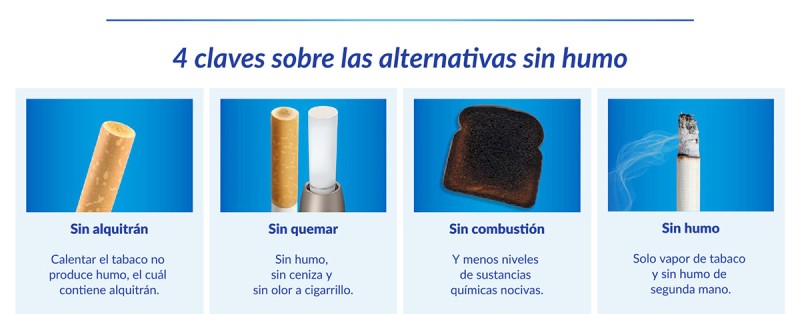Astypalea is hard to distinguish from dozens of other Greek islands: It’s a tiny cluster of whitewashed houses perched above the Aegean Sea, perhaps best known for being shaped roughly like a butterfly.
But it now has a claim to fame: It is the first island in the world to become officially “smoke free” — or so its leaders say.
“In Astypalea, we are changing and moving toward a cigarette-free world with the support of Papastratos,” the island’s municipal government announced in 2018, in a Facebook post punctuated by a heart emoji. At a ceremony the following year, it received an official “smoke-free” accreditation issued by TÜV, an Austrian certification firm.
“Astypalea incorporated the smoke-free initiative into their identity […] Simply amazing,” wrote one attendee, Kate Volgina.
But what wasn't emphasized in this PR blitz was that Papastratos is the Greek subsidiary of Philip Morris International (PMI), one of the world’s largest tobacco companies. Volgina is a public relations manager for PMI.
In fact, the island’s newfound “smoke-free” status is not only misleading, since there are no new restrictions on cigarettes, but it is also sponsored by the tobacco industry.
In Volgina’s Facebook post, she lauds how smokers on Astypalea are now being offered “better alternatives” to cigarettes.
“What better alternatives?” a commenter asks.
“IQOS,” she responds, naming PMI’s smokeless tobacco device, which it has been heavily promoting in the past few years.
It’s not just Astypalea. At least 45 municipalities, hotels, and companies –– from the Czech Republic to the Canary Islands –– have been certified “smoke free.” Many have done so with the support of PMI.
The certification is a bit of a rhetorical stretch, as it does not require a jurisdiction to limit the sale or consumption of cigarettes. Instead, authorities encourage residents not to light up as part of a public relations campaign, which is seemingly designed for PMI to promote IQOS. The device is intended to keep business booming as cigarette consumption declines globally, and anti-smoking regulations pile up in Europe and elsewhere.
In the face of falling cigarette sales, PMI is pitching its “Unsmoke Your World” campaign”, which envisions a “world without smoke,” starting in locales like Astypalea. But PMI doesn’t appear to be interested in a world without tobacco.
Reporters discovered that the campaigns seem to be accompanied by a marketing push for IQOS, which heats branded tobacco sticks inside a proprietary device, instead of burning it with a flame.
PMI has made a panoply of health claims about the IQOS, arguing that it is less harmful to the lungs than traditional cigarettes, and it has funded studies intended to prove just that. But tobacco control experts say there is no proof that such devices are actually safer.
PMI declined to comment for this story. TÜV Austria said its “certification procedure does not include, nor requires, the promotion of products.”
When asked whether it had partnerships with PMI or its subsidiaries, company spokesperson Andreas Wanda said: “There is no partnership between TÜV AUSTRIA and its clients but a contractual relationship.”
Wanda did not say which clients he was referring to. Asked whether the certification body was promoting PMI, he said it was not. “TÜV AUSTRIA does not promote any of its clients nor its operations.”
Trojan Horse
It’s easy to see how local officials can be sold on the “smoke-free” concept as a way to help their cities stand out from the crowd, and attract tourists. Bloggers said PMI invited them to a lavish press junket in Astypalea to show them around the island. PMI also published a glowing story on its website praising the “tiny but entrancing” island’s clean air, cuisine, and local leadership.
But these partnerships are clear violations of the World Health Organization’s anti-smoking treaty, the Framework Convention on Tobacco Control (FCTC), which forbids any cooperation between governments and the industry.
Tobacco control experts told OCCRP that the smoke-free certification appeared to function like a Trojan horse, opening the door for more cooperation and giving the tobacco company a seat at the table during public health discussions.
“Eroding the FCTC is good news for tobacco companies,” said Louis Laurence, a researcher at the University of Bath’s Tobacco Control Research Group.
In Greece, the newly “smoke free” Astypalea embarked on more partnerships with Papastratos. The tobacco company was announced in local media as a sponsor of the Astypalea Cycling Festival, and it gave 15,000 euros to the city council for a conference on green energy.
PMI’s larger goal with its “smoke-free” destinations appears to be to “normalize the adoption of IQOS for those quitting cigarettes,” Laurence said.
The devices are relatively new on the scene, and health authorities are still assessing where they fall under anti-tobacco regulations. PMI has been lobbying governments worldwide to make sure that heated tobacco devices like IQOS are not subject to the same FCTC sanctions as cigarettes, according to experts. The tobacco company argues that they are healthier because they do not emit smoke.
Locals on Astypalaea have picked up on PMI’s message.
“They made an arrangement with the municipality of Astypalaea ... saying that [people] should quit smoking and start vaping,” said Alexander, a bartender on the island who agreed to be interviewed on condition that his surname be withheld.
He said that after the campaign began, IQOS started to be aggressively marketed across the island.
A lifestyle blogger known as The Yorkshire Gentleman, who attended the PMI-sponsored junket to promote Astypalaia’s new smoke-free status, posted photographs showing how IQOS was advertised at a smoke-free beach he visited. The blogger also raved about the luxury hotel where PMI put him up –– and made sure to mention IQOS.
“What an absolute delight of a hotel it was!” he wrote. “Complete with indoor Jacuzzi, sun terrace, and separate upper bedroom level! This is one of the hotels on the island that have gone smoke free, but smoke free IQOS devices are allowed.”
Alexander, an inveterate Winston smoker, said he was not impressed by the campaign. But many other locals switched to IQOS because it became so easy to find the products on Astypalaea after it became “smoke-free.”
“Imagine: the biggest cafe in town promotes IQOS with collaboration of the municipality,” he said. “You will enter this cafe and the first thing you will see is a big table with many IQOS products.”
The mayor’s office in Astypalea did not respond to requests for comment.
Smoke-Free Spa Town
Karlovy Vary is about as different from a Greek isle as you can imagine: a land-locked Czech spa town famous for its historic hot springs and centuries-old Central European architecture. But like Astypalea, it is now “smoke free” — also with the support of PMI.
The town’s mayor signed a cooperation agreement with PMI’s Czech subsidiary in May 2019 to become “the first spa town in the Czech Republic without smoke.” A few months later, the tobacco company gave nearly 21,000 euros to the city council to pay for waste services and ashtrays.
“The aim is to create an environment for informed choice of adult smokers,” reads the official agreement, obtained by OCCRP.
“Informed choice” stands out to Mary Assunta, a senior policy adviser at the Southeast Asia Tobacco Control Alliance, as a well-worn tobacco industry buzzword.
“You can pick up that this is coming from the tobacco companies, and particularly Philip Morris, because it’s exactly the kind of language they use when they want to undermine or defeat legislation,” she said.
Karlovy Vary also agreed with Philip Morris to “raise awareness and availability for adult smokers of smokeless tobacco products, their benefits and lower risks.”
The city said it would print and distribute informational brochures about these products, and agreed to “create areas where smoking of traditional cigarettes is prohibited, but the use of less annoying and risky alternatives to tobacco products, etc., is allowed.”
In return, Philip Morris said it would work to “raise the profile of [Karlovy Vary] at the national and international level.
Andrea Pfeffer Ferklová, the mayor of Karlovy Vary, defended the agreement. She said it could help people stop smoking, and insisted it doesn’t promote specific tobacco products. She said it was a good thing that PMI would “save taxpayers’ money” with its donation for waste services.
“There has been no link or reference to any products of any tobacco company mentioned in any of the City's communication,” she told OCCRP.
But the official City Hall newsletter, “Radniční listy,” has promoted the tobacco company’s collaboration with the municipality. It also published an article directing smokers to the PMI-registered website unsmokeyourworld.com.
At the Karlovy Vary International Film Festival in August, PMI installed an interactive exhibition called World Without Smoke Laboratory, where visitors could learn about cigarette alternatives, including IQOS. The tobacco company was listed in a press release as an official partner.
Unsmoking the Balkans
Certification Smokescreen
The “smoke-free” concept hinges on PMI being able to offer some kind of tangible benefit to places like Astypalea and Karlovy Vary. Giving them money is technically prohibited. This is where the certification company TÜV Austria comes in.
Starting in 2018, TÜV Austria began offering what it calls the “Smoke-Free Culture” (SFC) Certification Protocol. To get certified, an organization or locale must “wish to be associated with tangible actions, implementation plans and measurable objectives in order to be relieved from cigarette smoking.”
“The TÜV AUSTRIA SFC certification scheme does not certify smoke-free products nor services,” said Wanda, the company spokesperson. “The scheme addresses systemic actions that organizations maintain or take to support a smoke-free vision.”
Notably, nothing in the smoke-free certification suggests cutting back on tobacco products, just cigarettes.
TÜV even promotes the use of electronic cigarettes or heated tobacco products “for those smokers who consciously decide to continue smoking.”
OCCRP obtained documents that TÜV sent to parties interested in becoming certified. They explain that, to receive the certification, applicants must “facilitate the awareness of smoke-free products, which are better choices for smokers compared to combustible tobacco products, based on scientific evidence.”
Smoke-free products include heated-tobacco devices like the IQOS, although it is not specifically named in the certification. The science is still out on whether such devices are less harmful than cigarettes.
The documents cite Astypalea island and Papastratos, the PMI subsidiary, as examples of places and organizations with a smoke-free culture.
Papastratos isn’t alone — PMI’s subsidiaries in Canada, Lithuania, the Czech Republic, and Slovakia have also received the certification, with more offices going through the process.
"It is absurd to reward a company that shipped 1.9 trillion cigarettes between 2019-2021 with a Smoke Free certification" said Louis Laurence, from University of Bath.
After its success in Greece and Czech Republic, the tobacco giant shifted its attention to Spain. It pitched the idea of becoming TÜV-certified to La Graciosa and El Hierro, the two smallest Canary Islands.
“Obtaining this certificate would place El Hierro in the environmental vanguard worldwide,” the Canarias7 news outlet reported after a briefing given by a PMI official on the new “El Hierro Libre de Humo” initiative.
In La Graciosa, the city council of the island’s capital partnered with PMI on “La Graciosa Sin Humo,” which included large cigarette-shaped signs proclaiming that the island was a “smoke-free space.”
Francisco Rodriguez Lozano, a doctor who formerly headed Spain’s committee on tobacco control and is now president of the European Network for Smoking and Tobacco Prevention, said local tourism officials told him PMI had sweetened the deal by offering support for tourism projects on La Graciosa, and even handing out IQOS devices.
He accused PMI of turning to the Canary Islands to “greenwash” its image.
“For me it is clear that, in the case of the Canary Islands and the smoke-free culture campaign in the area, Philip Morris International is trying to improve its image,” he said.
But unlike the agreements elsewhere in Europe, this one set off a furor, with the Spanish Health Ministry publicly blasting the campaign. Health officials were incensed that local governments had made agreements with PMI, and that TÜV claimed its certification was “always in accordance with the guidelines of the competent Ministry of Health.”
The management of Philip Morris Spain told local media that the agreement with la Graciosa “in no way will imply or be linked to the present or future promotion of PMS of its brands and products.”
But reporters found an archived copy of the “La Graciosa Sin Humo” webpage –– which is no longer online –– that directed visitors to a PMI-owned site promoting heated tobacco technology. An image on the site compared an IQOS stick to a traditional cigarette, suggesting it was a cleaner alternative to smoking.
Miguel Ángel Páez, an entrepreneur on La Graciosa, said local opinion on the initiative was mixed. Some initially thought that “La Graciosa Sin Humo” would be good for tourism on the small island.
“They thought, ‘Oh, that’s publicity,’” Páez recalled.
But when doctors started coming out against the idea, many islanders became concerned, he said.
“Now some people just look and say, ‘Oh my god, what is this?’”
